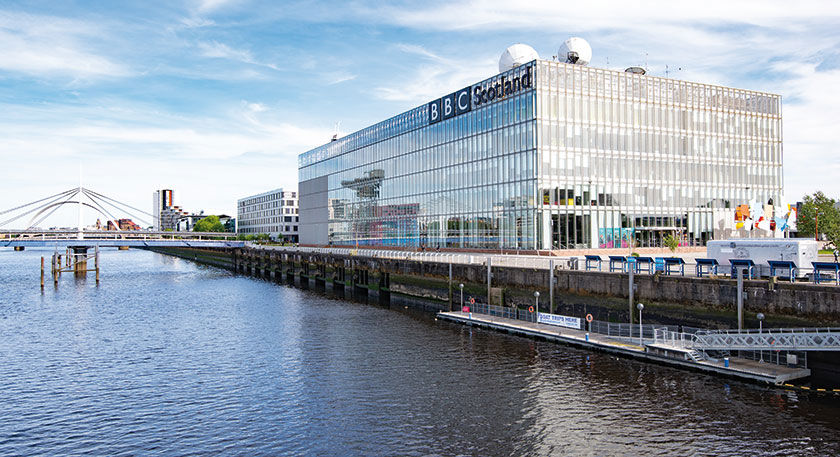
Why QMU?
We have long history of teaching media, communications and public relations, preparing students for fulfilling and dynamic careers. QMU offers a range of taught master’s degree courses that can give you the opportunity and confidence to build your career in the media and communication industries. Our courses, the only such degrees in Edinburgh, are global in outlook, and engage with current developments in this dynamic and ever-changing field of practice.
Professionally-relevant courses
We offer the following courses:
- MSc Digital Campaigning and Content Creation
- MSc Global Film Industries
- MSc Political Communication and Public Affairs
- MSc Strategic Communication and Public Relations
- PgCert Strategic Communication and Public Relations
For those with specific interest in film, our new MSc Global Film Industries explores the global film business, providing students with opportunities to build a network of local and international industry contacts.
For those aiming to start or develop a career in the communication and PR sector, our well-established MSc Strategic Communication and Public Relations has a proven track-record in supporting you to achieve your professional aspirations.
If politics and policy are areas of interest, our MSc Political Communication and Public Affairs allows you to development the skills and knowledge required for a career in public affairs, policy communication, advocacy, or campaigning.
If you see your future in the fast-paced world of digital media, our unique MSc Digital Campaigning and Content Creation combines the practical skills and theoretical knowledge needed to produce arresting and engaging online video content.
Strong industry links
Our teaching team combines years of professional experience with research-informed academic expertise. In a highly competitive job market, learning from experienced professionals is important. QMU also has strong links with major global media, communication and creative organisations and invites senior executives and policymakers to provide students with first-hand insights into professional practice. Many of our industry contacts regularly offer placement opportunities to our students.
QMU staff have a wide range of industry networks that enrich our suite of master's courses. Field trips, industry work experience and expert speakers ensure students are connected to industry throughout their studies, allowing them to build their own professional networks and employment opportunities. They contribute to cutting edge publications and make award-winning films and digital content.
Accreditations and memberships
We have affiliations with several external bodies that will enhance your time as a student. QMU is a member of the Media, Communications and Cultural Studies Association (MeCCSA) and partner institution of the Public Relations and Communications Association (PRCA). The MSc Digital Campaigning and Content Creation and MSc Strategic Communication and Public Relations is also accredited by the Digital Marketing Institute (DMI). Our affiliations mean that we can offer students access to these important professional and academic bodies and their resources.
Flexible study options
We offer flexible study options designed to fit around your career. Full-time and part-time routes are possible, and usually both a September and January start date is available each year. You will benefit from face-to-face and online teaching and, if studying full-time you will learn alongside those studying on a part-time basis, many of whom work in professional roles.
You can focus on an area of interest specific to you, undertake original research, work on professional projects and develop a portfolio of work to enhance your career.
Specialist facilities
As a student on any of our 'Media, Communications and Public Relations' courses, you will benefit from the wide range of QMU learning facilities and will be supported by access to an extensive range of online materials and resources via QMU’s virtual learning environment (including electronic books, journals and teaching content) even when off campus. You will also have access to our on-campus Startup Studio. Students on the MSc Digital Campaigning and Content Creation will utilise our film and video editing suites, which includes a subscription to the Adobe Creative Cloud (that will be installed on your PC/Mac) suite for the length of the course and access to latest range of camera equipment like the Black Magic Ursa and the latest Sony cameras and Cannon lenses.
Great career opportunities in a rapidly expanding industry
According to Nesta (2018) the creative and cultural industries are driving economic growth across the UK, and are predicted to create one million new jobs between 2013 and 2030. Likewise, the UK PR and communications industry is the most highly developed in Europe and second only to the US globally.
The creative and cultural industries are key drivers in economic growth and new job creation across the UK. Likewise, the UK PR and communications industry is the most highly developed in Europe and second only to the US globally.
According to property consultant CBRE, Edinburgh ranked third after Manchester and Reading as those areas outside London with the potential to further develop as a destination for the publishing, film, TV, media, digital, computer programming and information services sectors. Our students benefit from all that Edinburgh offers as a national centre of government, business and creative industries, as well as being the home of the world’s largest arts festival.
Check out the latest industry statistics including skills gaps and salaries at:
prca.org.uk/insights/about-pr-and-communications-industry
creativeskillset.org/job_roles
communicationmonitor.eu/globalnetwork/
Find out more information on how to apply for a course at QMU.